Hello Dear Readers.
It’s been a painful week on Earth. I was going to publish this column on Thursday, but the heartbreaking news about Russia invading Ukraine made me pause. There’s never a great time to discuss rape, honestly. But maybe it’s always a good time to talk about pain, blame, and forgiveness — because it never ends.
I care about each and every one of you so much. I’m not sure what I’m going to do with this column in the coming months — I have ideas, and I’ll run them by y’all — but I’ll be taking a break this coming week. I need it. I’ll check back in over here, looking for advice about what to do next. Meanwhile, please take care of yourselves, and know that I love you.
I’m reading the comments.
Note: I also recorded a video-reading of this post, live from my living room. It’s HERE! You can access that if you’re a $5 paid subscriber … join here:
xx
A
………
Dear Amanda,
I did something awful last year.
There was drinking and drugs and, although it was not something I’d consciously wanted to do, I got myself into a position where I and a male friend got into bed with another female and male friend and touched them whilst they were asleep.
I was encouraged, asked even, to touch the guy’s dick, but I did not object. Later, I confessed about having done this, and it almost ended my marriage to my most profound, understanding, and supportive husband. I didn’t know how to react, and a big friendship group I had holidayed with and loved fell apart in a matter of days.
I want to take ownership of what I did, but the guy still doesn’t know what happened (exactly, that it was a sexual assault) because the other guy involved denied anything sexual happened, and by the time I was in a position to talk about it, the man I’d assaulted, a dear friend of several years, had cut all ties with me. He told me he didn’t want to talk about it and refused to hear my explanation. I don’t want to force him to go through it, but I want him to know what happened so he knows what happened to his body.
I don’t want to doorstep him and cause him more shock or grief. I’m also scared of the legal ramifications.
How can I heal and forgive myself?
Should I find some way to tell him what happened? I’m not sure if it’s cruel or kind. He wishes not to know and I want to respect that.
In many ways this awful thing has led to positive changes in my life, a re-evaluation, but I’d be lying if I said it didn’t still haunt me.
I love my husband and my family more than ever, but I hate what I did with every inch of me.
Thank you for reading this.
—Hoping to Heal
………
Hi Amanda.
Last year, I was raped by my partner at the time.
I think we loved each other too much at the time to deal with it; we broke up a while after. I spread the word that he was a rapist, abusive, etc. … and social media did its thing. He was an activist, so I didn’t want him to hurt anyone else.
Recently, he reached out to me to apologize. We met up, talked, mutually admitted that we had thought we were going to marry each other. He seemed genuinely sorry. And then we had sex. We agreed to be friends for now, and agreed that after college we might try again. Am I awful for loving him? Am I awful for forgiving him?
Am I awful for wanting him to love me?
—Confused
………..
Dear Hoping and Confused,
Oh, man. I love you both so much.
I wish I could wrap my arms around both of you and just hold you and tell you it’s gonna be okay. I can’t hold you, but I can write to you. Here I go.
You are not awful. Either of you.
I have been asked about rape — and how to deal with the feelings around it — many times, especially after writing so many songs about it.
But first: I’m not a professional. Please, all of you: when it comes to the legal stuff, be very careful and consult an actual lawyer. Do not take legal counsel from some random rock star (ahem) or a random person on Instagram, k? And to anyone who’s grappling with this stuff: you can also call a real clinical therapist or certified rape counselor. There are hotlines and places to go. I’ll put some information and links at the bottom of the column. You’re not alone. Ask for help.
Okay, Dear Hoping. Dear Confused. I’m gonna write to both of you at once, and I think that addressing both of your questions in one thoughtful letter will maybe be more meaningful than answering you separately, because, as I’m sure you can see, you’re both suffering on opposite sides of the same bed.
I was raped and sexually assaulted multiple times as a teenager. I’ve written and spoken about it over the years, but even after a lifetime of activism, it has taken me until my 40s for the mental clouds to fully part and for me to fully accept that certain “things” that happened in my younger life were absolutely, unquestionably rape. I always wanted to dismiss so many experiences: it wasn’t rape or sexual assault because I wasn’t penetrated by a dick, because I was drunk, because I went to the guy’s house, because, because, because. Because, as an emotionally mature (or so I thought) teenager and self-described crazy artist, I thought these were very important and interesting experiences for a crazy teenage artist to have.
But: that time when I was 14 that my high-school crush asked me to strip, then tied me to a table in his basement and left me for his older friend to find as a “surprise birthday present”? That was sexual assault. That time I got drunk and went home with a guy I barely knew, then woke up in the morning to his dick inside me? That was rape! The time I was cuddling with a platonic older friend and he shockingly and drunkenly slipped his hand onto my vagina? That was sexual assault! I just didn’t see it that way at the time.
I could tell you a dozen stories like these from my own life, from the hands that have drunkenly grabbed at my private parts uninvited, to the married schoolteachers who managed to lure a very curious and enthusiastic 15-year-old Amanda into their bedrooms, to the boyfriends who cajoled me into sexual acts I had no interest in taking part in but did so because I wanted desperately to please, wanted desperately to seem sexually mature, wanted desperately to be liked and loved. And so often, saying yes to unsavory sexual endeavors seemed to be the only door to intimacy and acceptance.
It’s 2022, and we all — thankfully — have more understanding of this distorted way of thinking. So, both of you, you’re already ahead of the old game. You’re both aware that something wrong happened. And that, in itself, is commendable. Millions of people every day don’t even get that far.
I wrote a lot of music about rape and sexuality in my 20s, mostly as a way to heal and cope. There’s a song called “Slide” by The Dresden Dolls that I wrote as an instinctive form of music therapy when I was about 15. I still stand by it as one of the better songs I’ve ever written about sex and pressure and how frightening it can feel.
But despite all the healing I’ve done myself after having been assaulted, I’ve also been on the other side of the story.
I’ve done my fair share of drunkenly convincing, playfully cajoling, peer-pressuring, and over-aggressively cornering my sexual partners — sometimes one-night stands, sometimes long-term lovers — into doing all sorts of things in bed (or in cars, or in the woods). I’ve made likely unwanted advances toward lovers in their sleep. Will I ever understand the damage I’ve done? Will I ever know if they felt wronged, or too pressured, or violated? Will I ever have those conversations or get total clarity? No, I won’t.
Will I ever be able to set all those moments right, and apologize for the hurt I’ve almost definitely caused? (I do know one thing for certain: alcohol was at the root of 97% of my hurtful decisions, and I can count on drunkenness to lead to stupid decisions about 97% of the time. But our — and I use the royal “our” there — relationship with alcohol is probably for another column on another day.)
I want to tell you both a story, about something that occurred a few years ago on my “There Will Be No Intermission” tour, the 80-show solo piano and storytelling tour that ultimately landed me in my little adopted waylay-country of Aotearoa New Zealand, where I was supposed to perform the last four shows (and look, yep, here I still am, sitting in a coffee shop in Auckland writing an advice column about rape).
It was the start of the whole tour in 2019, and I was in Portland, Oregon, playing two back-to-back shows at the Crystal Ballroom. I had just decided, a few nights before, to open the show with the story of the guy who tied me to a table in a basement when I was 14. I spoke about how I didn’t quite digest, at the time, that it was sexual assault. And I also told about how the guy, 20 years later, wrote me an amends letter. He was probably in some sort of recovery for drug abuse. For those not familiar with the steps in recovery, it’s common for the recovering person to send amends letters to the people in their life who they have harmed, explaining that they understand the suffering they’ve caused.
In his letter to me, he explained that he knew what he’d done in that basement (and on other occasions, because that basement wasn’t an isolated incident) was terribly, terribly wrong. He told me that he didn’t expect an answer, but he asked for my forgiveness. I told the crowd in Portland that I wrote back to him. I told him that I was happy to hear from him. I told him that I forgave him for anything and everything he had done.
When I got to this part of the story, there was a woman at the back of the theater who stood up and screamed at the stage: “AMANDA PALMER?! FORGIVE OUR RAPISTS?! NO.”
This began a mass eruption of argument within the theater, and things started to resemble a bar brawl of angry people all simultaneously yelling. There were people yelling in agreement with the woman who’d screamed, people yelling at her to shut up, and people yelling at those people to shut up. It was out of control. And sort of funny. I mean, it was also Portland — land of activists — on a Friday night, and most people had been drinking.
I think in the old days, I would have started screaming into the microphone for everybody to please shut the fuck up and listen to me. But that’s not what I did.
I said nothing, sat down at the piano, and put the microphone in its stand and literally stared at the audience, in awe, for about 30 seconds.
People kept yelling, but it settled down enough for me to speak. I addressed the woman who’d screamed from the back. I said something along the lines of: If you want my honest answer… yes. We forgive our rapists. Or at least: I forgive mine. If you wanna talk about it, now’s not the time. I’m gonna keep performing my show so I don’t go over curfew. And if you have any more questions or interruptions, please raise your hand.
Both of you, Hoping and Confused, are asking about the same thing. You’re asking about forgiveness. And forgiveness is a narrow two-way street. You need to forgive yourself, and you need to forgive — in your own ways — the other party.
You do not ever have to forgive anybody. Including yourself. But you are always able. It’s on offer. You can forgive. You may. And the main thing to remember is that forgiveness is not endorsement. It is not saying that anything that happened is “okay.”
My dearest Hoping, you made a regrettable decision when you touched someone sexually without their consent, and it sounds like you’re hoping for closure with him. You say: “I don’t want to force him to go through it, but I want him to know what happened so he knows what happened to his body. Should I find some way to tell him what happened? I’m not sure if it’s cruel or kind. He wishes not to know, and I want to respect that.”
If you’ve already reached out to him and been told no, and you’re saying you “want to respect” his decision not to know what happened, then you actually gotta do that. Really respect his decision. Once you’ve reached out and been told to go away, any further conversation is unwarranted.
His experience is his to own. If he doesn’t want to work this out with you, that’s his prerogative. I know this is painful. You feel like it is his right to know what happened to his body, and you probably feel that telling him the truth is the only way to closure — perhaps for both of you.
But you cannot force someone into the arena of closure. You need consent to touch someone’s body, and you also need consent to make mutual amends with someone’s heart.
I have learned — after being the reckless one in many situations — that one of the worst things you can do is demand closure from somebody you have hurt, no matter how much you may think they need it. Let’s be clear, Hoping, it is you who needs the closure. Demanding it from someone else is yet another act of force; it adds salt to the wound.
You say, “I’d be lying if I said it didn’t still haunt me … I love my husband and my family more than ever, but I hate what I did with every inch of me.”
You can hate what you did and still love yourself. You are flawed. You fucked up. We are all flawed. We all fuck up. You made a massive error in judgment. We all do.
The Catholics have a maxim “Hate the sin, not the sinner,” but I don’t believe in hate, nor do I believe in sin, so we gotta ditch that maxim and come up with a new one. I’d put it this way: You can feel grief about your regrettable actions and not hate yourself.
You mention feeling haunted. I get it. Doing something hurtful to someone, especially when you’re not afforded the closure that you crave, eats away at you. It can disrupt your peace of mind at all hours, steal your sleep, and create a permanent sense of dis-ease. I have been there. (I think a lot of us have, so hands up in the comments, please. This is where we talk.)
I’d suggest taking a wider-lens view about what happens if you don’t let go of this self-blame and hauntedness.
If you allow this poor lapse in judgment — this regrettable act — to continue to haunt you, and if you don’t find a path toward forgiving yourself, it’ll have a knock-on effect that will continue to harm others. It’ll harm you. It’ll harm your family. It’ll harm the people around you. It’ll create a butterfly effect of suffering. If you are interested in decreasing the sum of suffering in your world, look at the act of forgiving yourself as an act of kindness for others. Yes: you caused pain. You caused hurt. You’re angry at yourself. But think about it this way: you may continue to cause pain and hurt if you don’t find a way to put this to rest. Look at the act of forgiving yourself as the most upstanding and moral thing you can do for those around you. It may help you get out of the spin cycle.
And to get concrete: how do you forgive yourself for doing something regrettable? It’s hard. I’ve had to do it many times.
I’ve written before about cultivating radical compassion, and it’s a necessary ingredient here. One of my favorite Buddhist sayings is “Holding on to anger is like grasping a hot coal with the intent of throwing it at someone else; you are the one who gets burned.”
So, try. Forgive yourself. See what it feels like. And at the same time: forgive that guy for shutting the door on you because he’s not ready or willing to talk.
I repeat for emphasis: Forgiveness isn’t endorsement. And it isn’t erasure. It doesn’t change what happened. And, important to note: it doesn’t mean you endorse your regrettable action. But these ideas need to live in different places. You’re allowed to forgive yourself and also be accountable for having done something shitty.
My friend Father Nathan Monk recently wrote a piece about forgiveness, and he reminds us that there is a difference between forgiveness and reconciliation. Just because we forgive, which can be passive, it doesn’t require reconciliation, which is holistic and requires action from both parties. People can become confused thinking forgiveness is tantamount to reconciliation, because we often combine them in society and religion.
Forgiveness is no walk in the park. It takes guts and hard work. I suggest — if you’re really having a hard time finding your way into the forgiveness — cultivating a general compassion practice. Sitting in loving-kindness meditation has really helped me with this sort of stuff.
This is a simple practice of settling your mind and then focusing on a feeling of well-wishing and compassion for yourself, then sending that feeling out to others. There’s something very powerful about the act of sending compassion into the world — starting with yourself, then rippling out toward the loved ones in your life, then out toward the strangers in your life, and then, hardest of all, toward the “difficult” people in your life. If you can manage to practice this, it generally softens the tense muscles of self-blame. It can help dislodge the stubbornness if your heart is not willing to stop the self-blame game. Ten or 15 minutes a day will do it, and if you want a specific suggestion: Sharon Salzberg and Jack Kornfield’s guided meditations in this area are wonderful, and you can find them for free on the Insight Timer app. (I’m not being paid by anyone to say that. I just dig the app.) Sharon once spoke about being so filled with self-blame and self-hatred that her first meditation teacher told her that she needed to spend an entire year solely focusing on having compassion for herself before she could even attempt to send compassion to others.
Be gentle with yourself. This sort of cultivation can take years, and you will constantly slip up and want to fall back into old patterns of self-blame. Just know that you’re not alone. So many people are here for you, flailing along with you, understanding this kind of work. (Me, too. Again, hands up in the comments, please.)
And as for you, dear Confused, you’re wondering if you’re “awful” for wanting to get back together with someone who raped you. You want to know if you’re “awful” for forgiving him.
No. You are not awful for wanting that love. It’s really human. And no, no, no. You’re not awful for forgiving, or wanting to forgive. As above — forgiveness is not endorsement. You can forgive and also hold him accountable for his actions, and still claim the hurt and grief he caused you. One does not remove the other.
Listen: acts of sexual assault don’t work like a massive “delete” button that simply vanishes away your previous positive feelings — or love, as the case often is — for the person who committed the rape.
It just makes things very complicated.
In many cases, sexual assault occurs with those people we know best. A lover. A spouse. A family member. And often, the perpetrator “gets away with it” because it’s just too hard to challenge and change the status quo. This is why rape culture is so insidious. Families, marriages, whole communities: they have an incredibly hard time dealing with this discussion, and it can feel easier to simply let things slide than to have dicey, difficult, heavily emotional discussions.
But if you have a willing conversationalist, and it sounds like you do: this, right here, is where healing and progress can start. Right here with you.
You can forgive, if you want to. It’s a big thing to do, and honestly, you do it more for you than for him. You do it to bring peace to your own heart. You do it because you deserve the peace of mind that forgiveness brings.
But WAIT. Along with forgiveness must come discernment. You gotta do both at the same time. You really cannot do one — and hope for good results — without cultivating the other. Forgiveness without discernment will lead you down the same painful paths over and over again. Forgiving your rapist and getting back together with your rapist and then getting raped again by your rapist is not a pattern you wanna get into.
So, Confused, yes. Forgive. But if you want to re-enter the relationship, you also need to be careful with your heart, and your body, and you need to make a mature assessment about this possible re-partnering.
It sounds like you’re both young. There is a difference between someone doing something regrettable in bed when you’re 20 and when you’re 60. If I had to be held eternally accountable for the stupid shit I did at 20, I’d be trapped in an unlivable circle of hell.
I’d recommend a really honest and open talk about what happened and what it all meant, and doing it with a neutral party — a therapist, if you can find one — would be helpful. If he isn’t willing to enter into that discussion, that should be an answer in itself.
Listen to what he says. Then ask yourself: Do you think he’s genuinely changed and grown? Do you think he really understands — now, having gone through this with you — how consent in sex works? Do you think, from the apology he offered, that he feels genuine remorse for what he did? If yes, I would say go forward with a whole heart, armed with a healthy awareness that this future partner has a history. RE-enter with mindfulness and carefulness. Re-look at what happened and why. Was he under the influence when it happened? Did certain circumstances lead to the rape? Talk about it. Talk about it with him. Work it out. I think you’ll know, in your gut, if he’s truly transformed or just saying things he may think you want to hear.
Forgive, try again; but don’t be naive. If you re-enter the relationship and you sense that he’s possibly going to relapse into poor behavior, don’t wait for multiple red flags. Get out. If drugs or drinking were contributing factors to the rape, pay extra attention to circumstances that may give rise to lapses in judgment.
And one last word of advice. You said “social media did its thing.” I imagine that one of the things you’re concerned about is how it’s going to look to the “outside world” if you take back this partner, given that you’ve publicly called him a rapist. This is an extra layer of pain and complication, as you don’t want your friends and social circle to come down on you for getting back together with a douchebag (if that’s what any of them, indeed, still consider him to be). So think about what is making your decision. Is your heart making the decisions? Or is there unnecessary peer pressure contaminating your decision?
If you do get back together with the guy, I would recommend identifying the people whose opinions truly matter to you (the actual friends, not just the casual opinion of random acquaintances on social media). Don’t generalize: pinpoint the people who matter. And before you re-ignite the relationship, have private conversations with those people in which you discuss the nuance and complexity of the situation. Call them into the conversation, talk about how difficult this has been to figure out.
If they feel like they’re in the conversation with you, and they see the confusion and the tenderness in your heart, they’ll more likely become your defenders than your attackers. If they don’t get it, at least you tried to have the conversation with them, and they may feel more respected than if they found out about it through a status update on the internet.
I hope this helps.
………….
I love both of you, Confused and Hoping.
There is a circle of suffering here, and I hope you can see how much you have in common with one another. You both need forgiveness. You both want to know that you’re not awful.
The smart, compassionate people who read this column will probably reach out to you and share their own stories, but if nothing else, I’m here to say it:
I forgive you. You are not awful. You are beautiful. And both of you are worthy of being loved. And, like me and like everybody reading this, you are human and fragile and messy.
I embrace you and your entire mess.
I love you, I love you, I love you.
With all my heart,
Amanda
P.S. This is the link to RAINN, America’s anti-sexual-assault hotline: https://www.rainn.org/
It’s 24/7 and free and confidential. If you’re not in America, here are some international resources if you need to talk to someone; this is a collection of worldwide agencies broken down by region, country, state, and sometimes city: https://pandys.org/forums/index.php?/forum/42-public-resources/
There are no stupid questions. Don’t be afraid to call these people. They’re there to help, and there’s no shame in asking or looking for guidance, no matter how unusual or weird you think your issue may be.
I love you.
………….
Original artwork for Ask Amanda is by Sarah Beetson. Thanks to Michael McComiskey for pulling together questions and links. Many thanks on this round to my patrons Leela, Andy, Kristin, Ryan, Mike, Tom, Jack, Lisa, Damian, and Stephanie for helpful feedback and guidance on the first draft of this answer. And special thanks to Father Nathan Monk for giving me helpful advice on the piece and allowing me to quote and share his work.

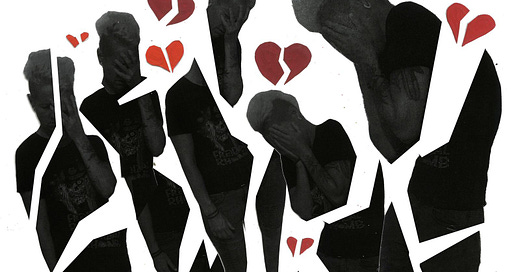



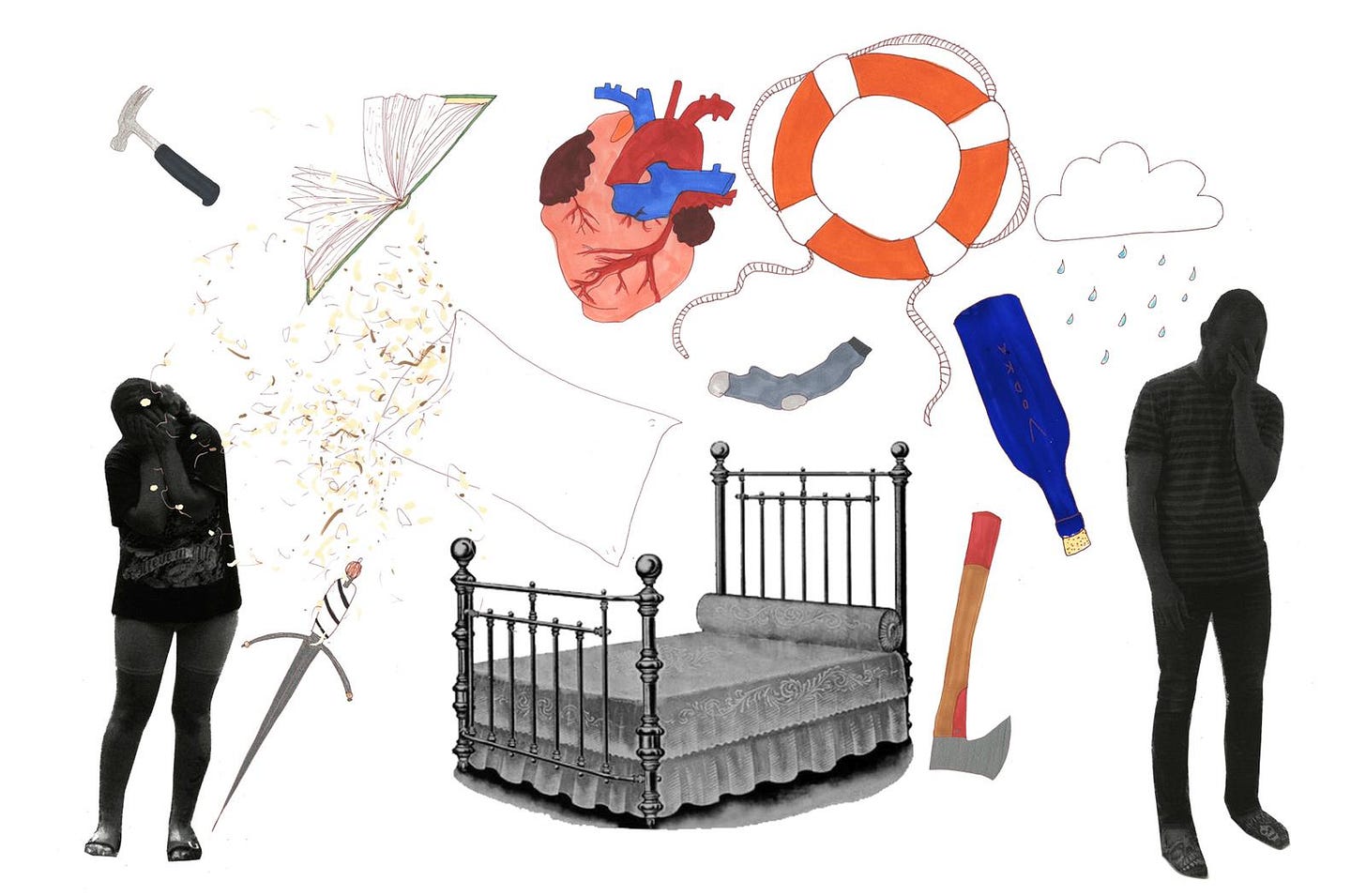
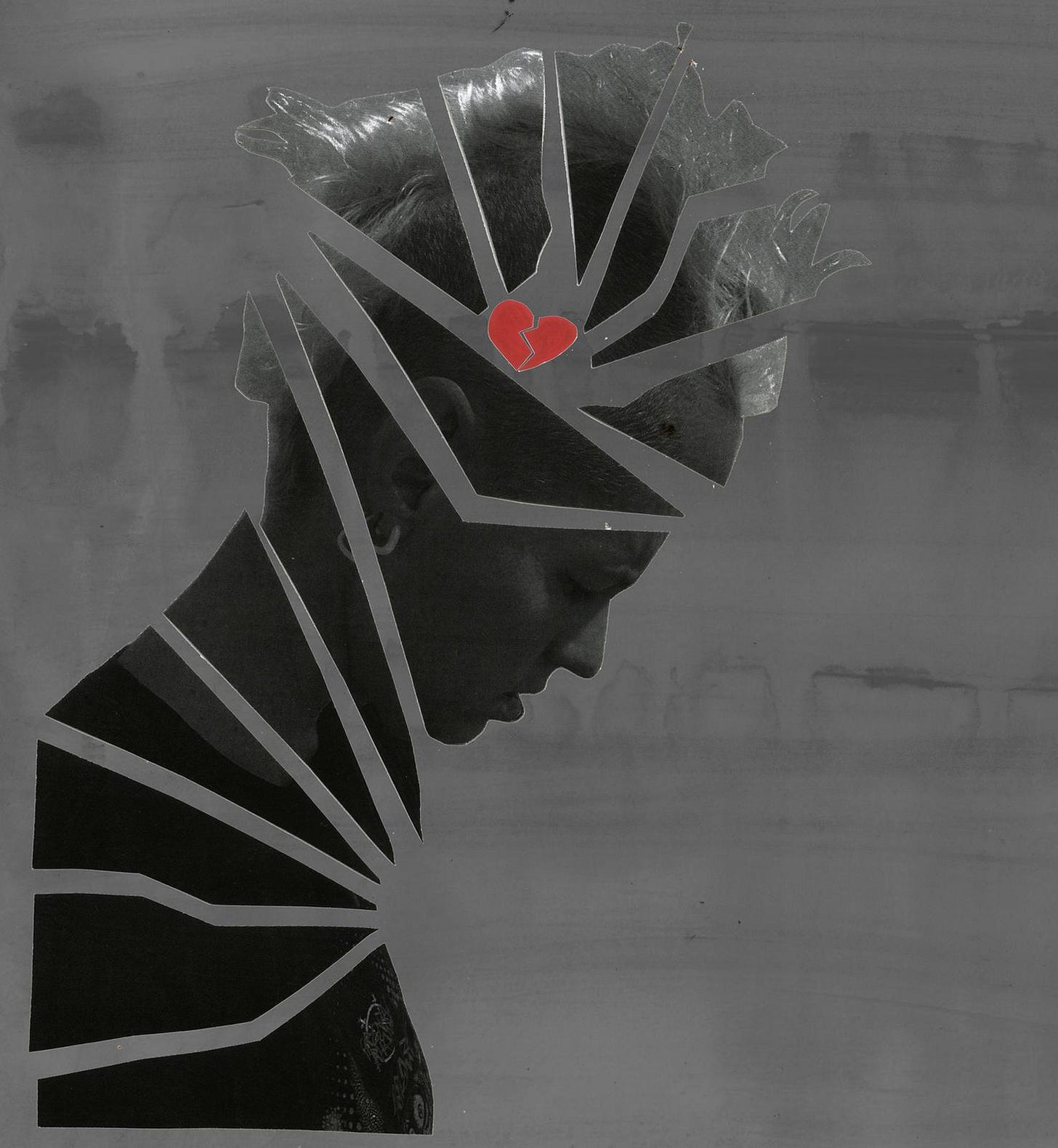
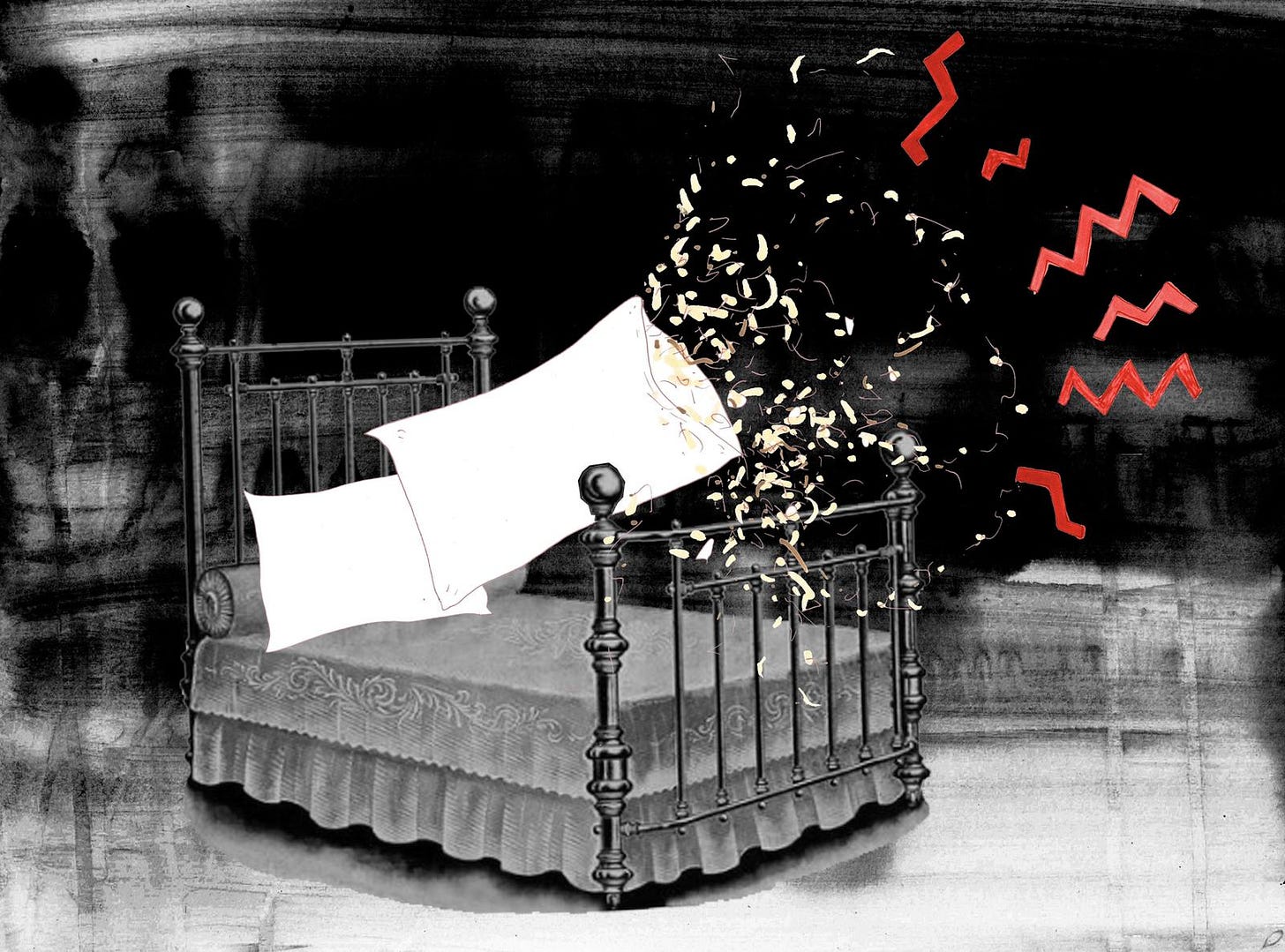
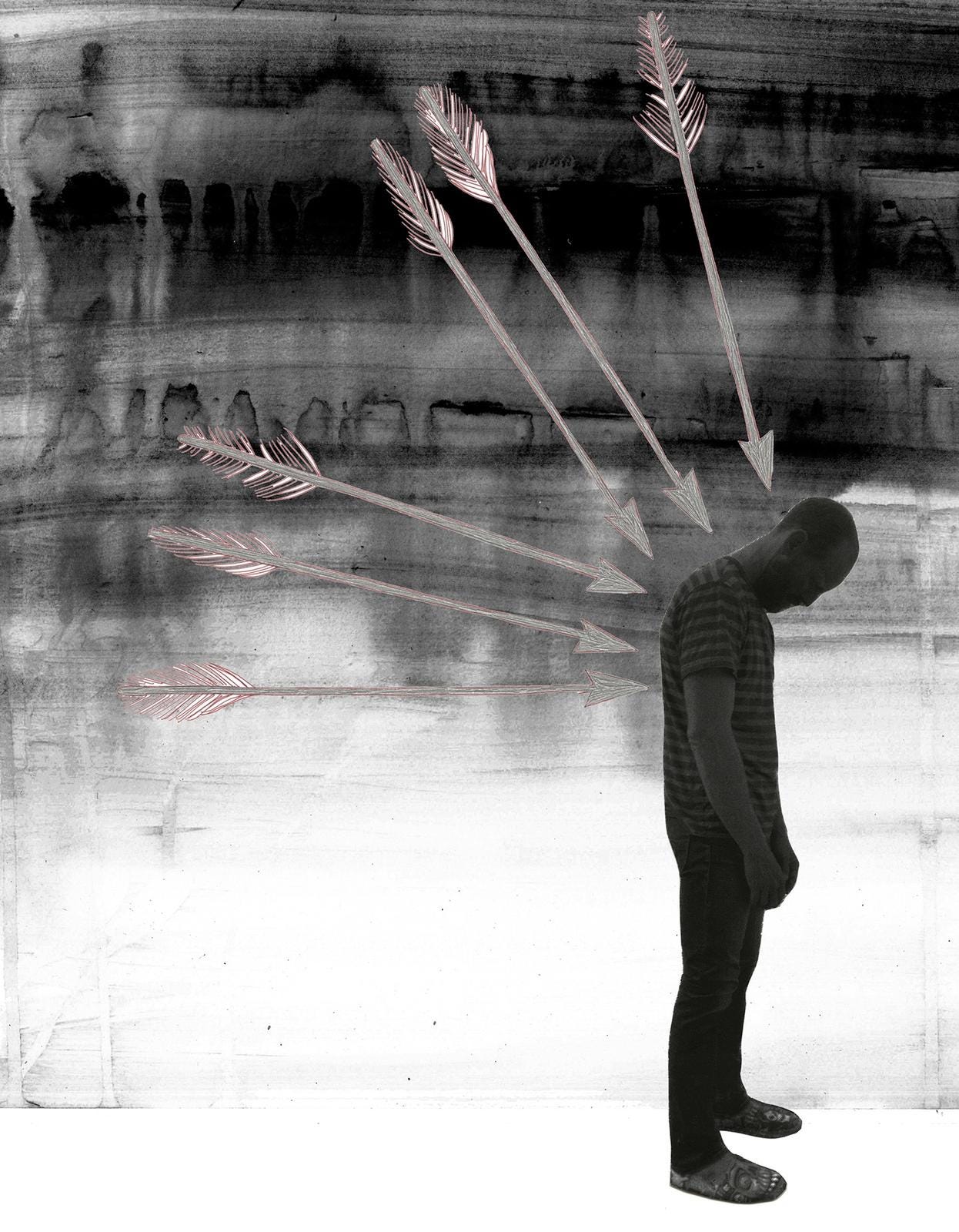
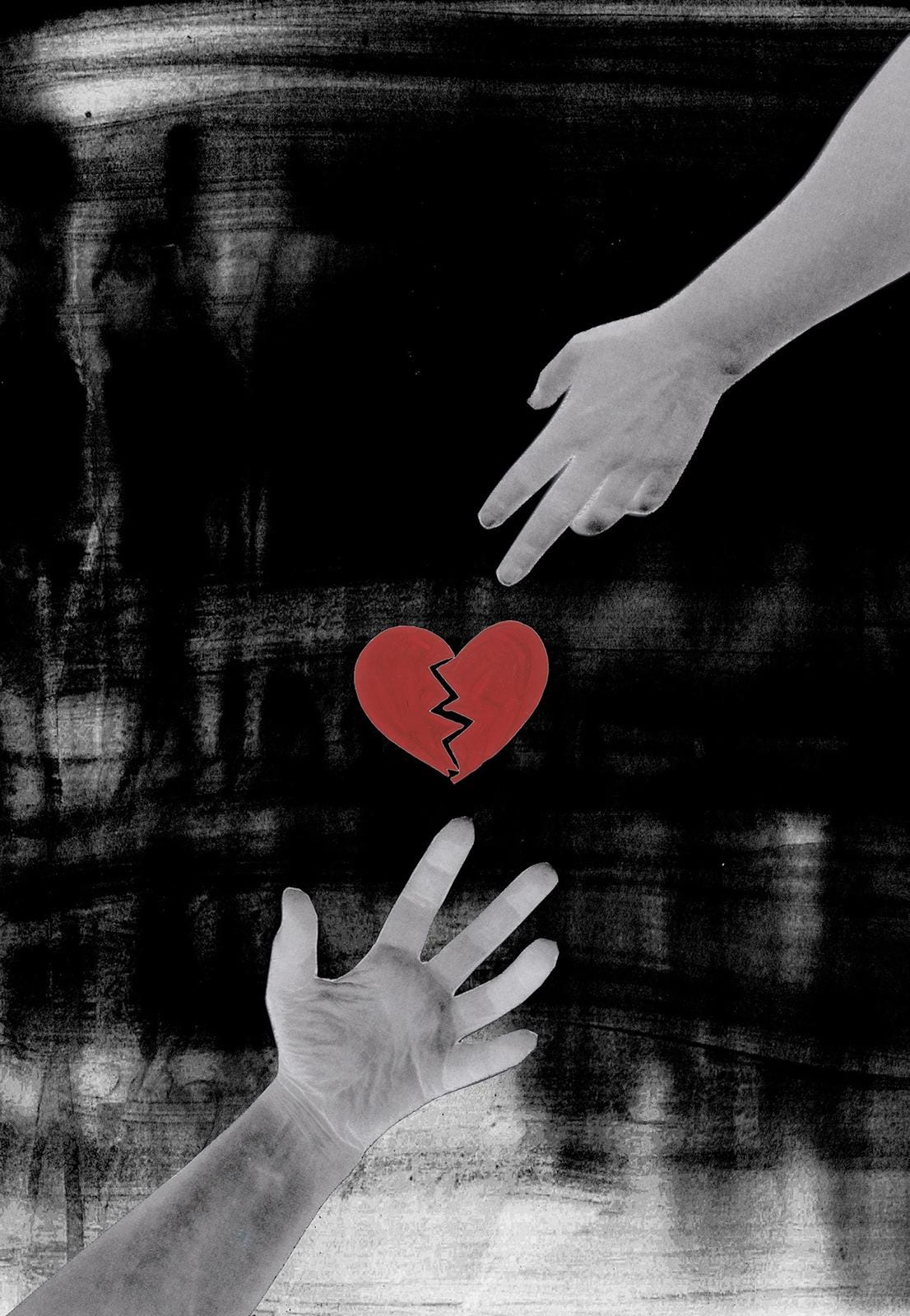
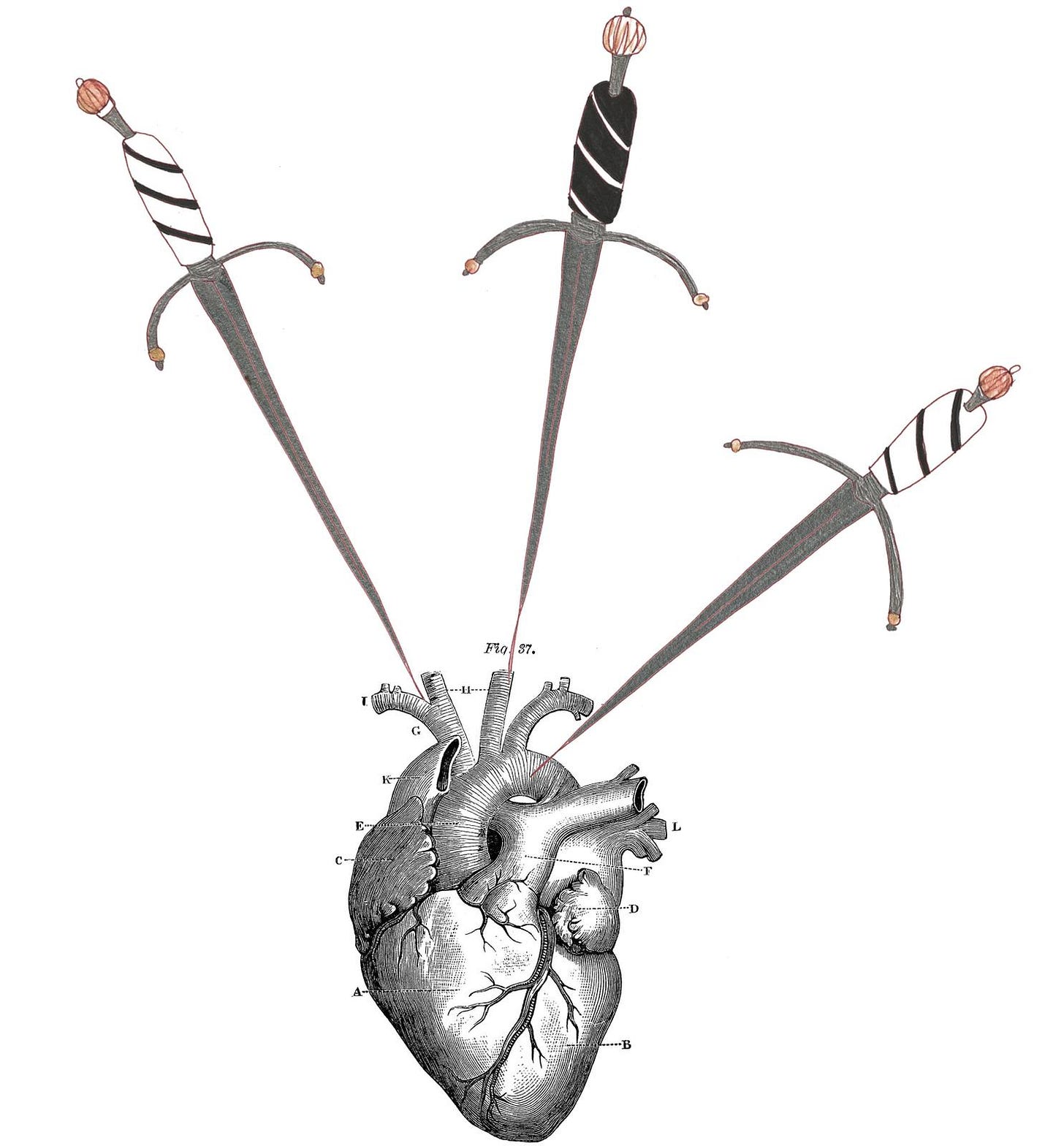
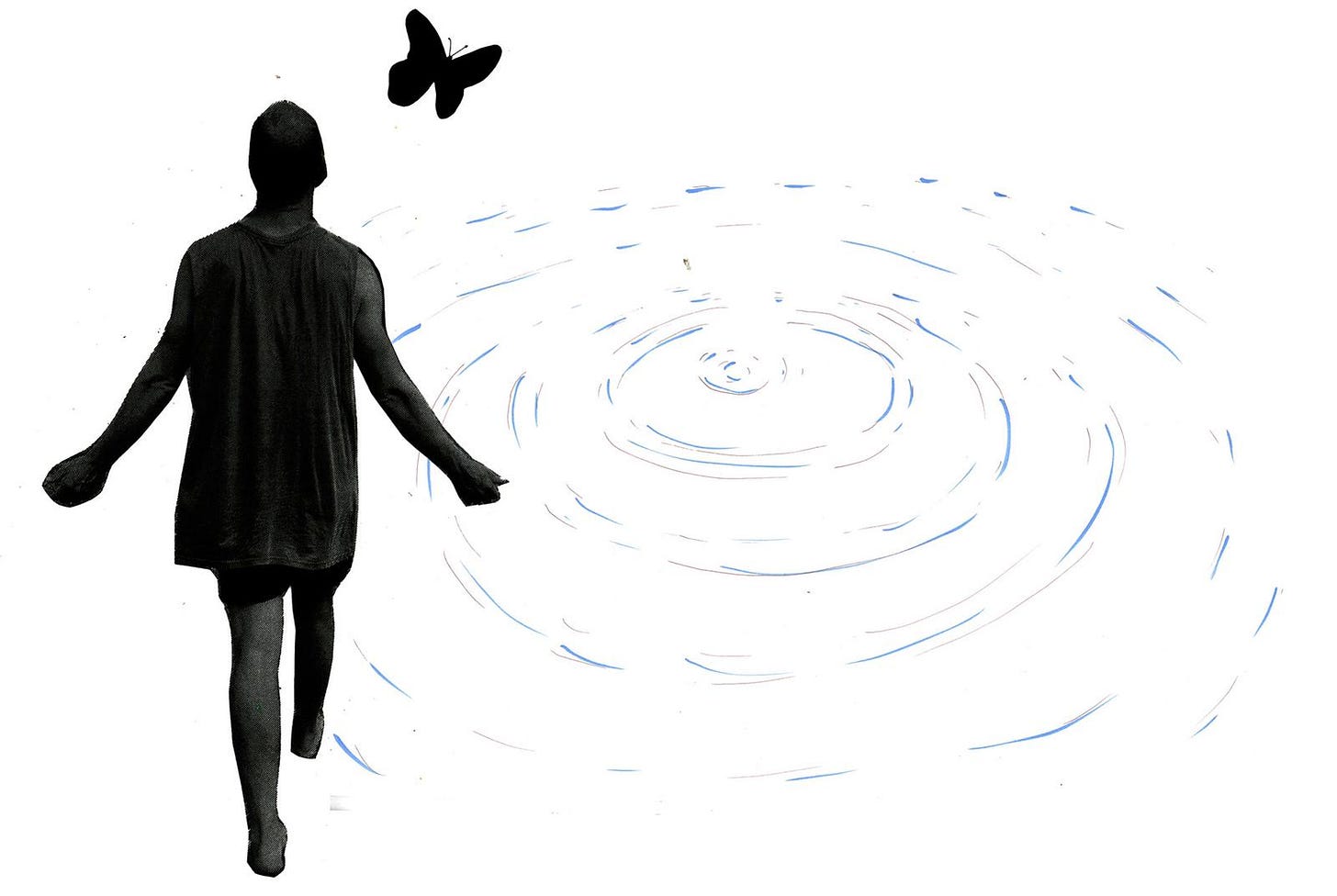
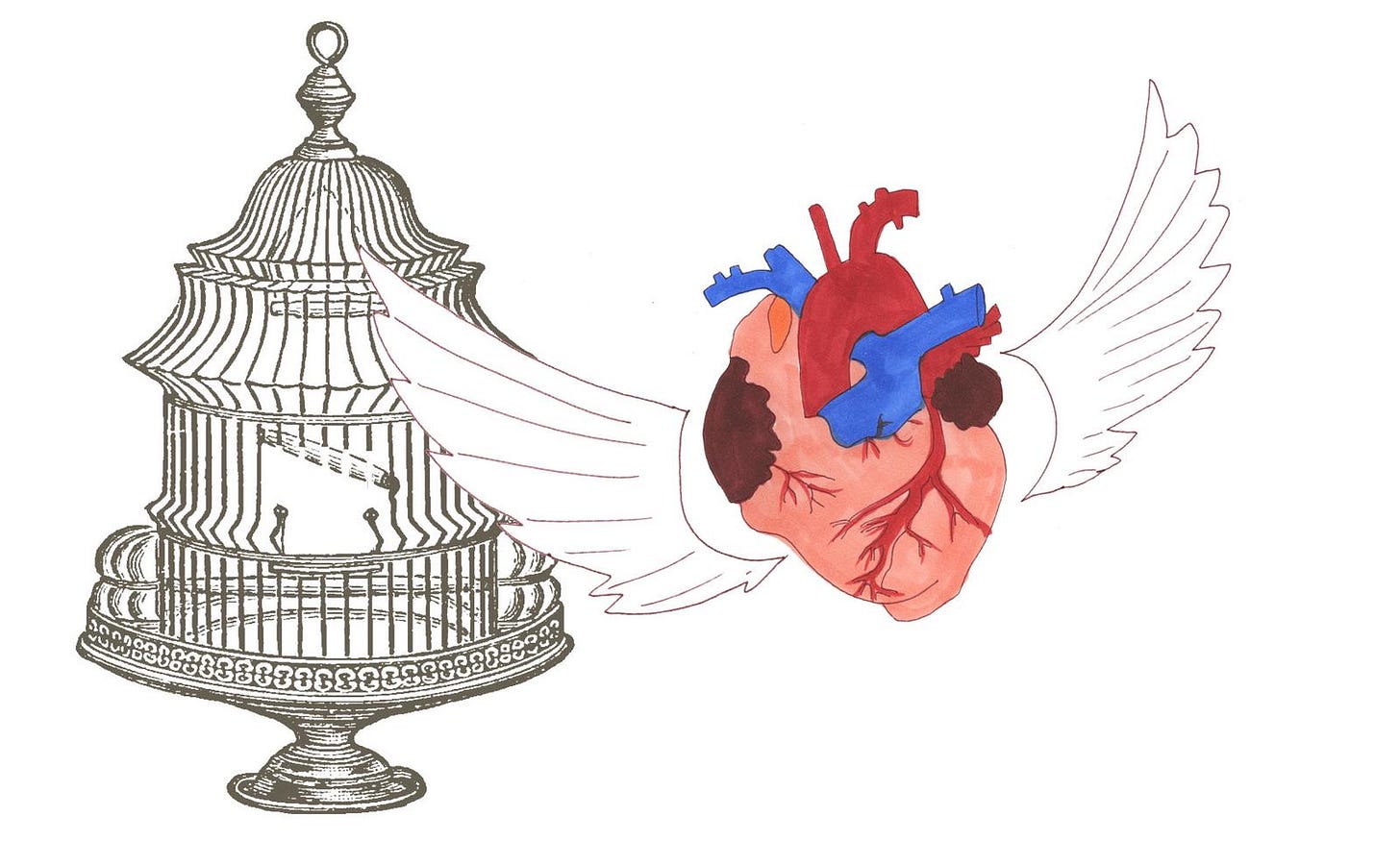
Hi, I’m Confused. I just want to say thank u from the bottom of my heart for answering my question. It didn’t end up working out, he wasn’t ready to admit or accept anything he’d done, so I left. I don’t have any regrets about my decision. When I saw that u had answered my question, i immediately started crying. When I first came out about being raped, no one supported me, my parents blamed me and my friends didn’t kno how to handle it. U are genuinely the first person who has shown that they actually care and i will always be grateful. Being happy again is going to be hard, but I’m working on it. Thank u, I love u.
- no longer confused
Thank you for this letter, Amanda. To Hoping and Confused - may you have peace and mercy for yourselves and others in your journey.
But to the chord of what is resonating here for me; forgiveness.
Amanda, you've stretched the concept out enough that we can see the little coils and spirals that make up the spring - that forgiveness, when done well, is a hundred or a thousand little spiral journeys along the same path. Eventually, what feels like the never-ending path ends up taking us something new from where we were before. Sometimes it springs us back to the past but often, it can help us gain momentum towards the future.
Mostly, I think we do not manage forgiveness well. We simplifying it into merely saying 'Sorry' for our children and then asking them to accept a new reality where everything is okay because someone apologised. We learn this as children, this simplified journey of forgiveness.. we learn it as a two-step when the steps are endless.
But here - dear Hoping and confused... here in this letter is a map, a guide for navigating a deeper, truer forgiveness. The kind that reaches into your bones. Forgiveness so often requires a wholehearted acceptance of ourselves before we can wholeheartedly accept the other. It's not to forget what has come before but to find pathways forward from it.
I'm not sure I believe in sin anymore either, although I think a practice of ethics is still rich territory for shaping a better humanity. However - there is still something to be said for when our deepest selves acknowledge and carry that sense of when something is out of place, out of time or out of 'the right'.. being that best intentioned human desire to do the best and right thing. Your sense of it and wrestling with it is a pathway to acceptance of self. Of seeing things as they are, as they can be and then charting a path forward.
That is the work of forgiveness we all must do. It turns out most weeks so far, Amanda has answered letters and questions from a completely different trajectory than mine but still they land on something I've been thinking and writing about - so I'll close with this:
I've been thinking it's possible that as with many things, we often use a word or a concept that is softer, with fewer hard edges and demands when actually the thing being demanded requires a more demanding word; a word that means work. And with forgiveness, I've been thinking about how here in my home country of New Zealand... there are lots of places we've talked about the concept of kindness that actually require the harder work of forgiveness. Perhaps that's why this letter feels so universal.
It's about the most intimate of violations which brings everything so much closer to our living centres, the home of our being. So for all of us, there are lessons to apply. For you, Hoping and Confused - I offer you both my compassion and comfort as you continue the work. As you forgive, may you help others find forgiveness wherever it is needed. As you do the work, I think you will help others to also do the work. As we become better forgivers, I think we can be better humans. So we will end up with kindness, but it will come from the deep root of forgiveness.
x Tash